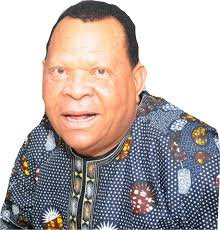The House of Representatives and the National Institute for Legislative and Democratic Studies (NILDS) are spearheading efforts to introduce a law that would require political parties to nominate a higher number of women as candidates in elections. This significant step towards achieving gender equality in governance was the focal point of a roundtable discussion on inclusive governance held in Abuja.
Despite Nigeria’s return to democratic governance twenty-four years ago, concerns persist regarding the underrepresentation of women in both appointed and elected positions. The previous general election vividly highlighted this disparity, with only 20 out of the 469 members of the National Assembly being women.
To address this issue and ensure more equitable representation in future elections, NILDS has joined forces with like-minded organizations to explore strategies that will increase the participation of women and persons with disabilities in governance.
This initiative follows a recent conference with similar objectives, and the organizers express optimism that sustained advocacy efforts can lead to a significant improvement in the underperformance of women – a group that constitutes a substantial portion of the voting population.
Speaking on the importance of gender inclusivity in governance, a first-time member of the House of Representatives, Kafilat, highlights the need for equal representation of both genders. Currently, out of the 109 legislators in the Senate, only four are women, while Kafilat is one of the sixteen females serving in the House of Representatives among 360 members. She advocates for political parties to be compelled to nominate more women as candidates, consequently bolstering their inclusion in decision-making processes.
In line with promoting inclusivity for all marginalized groups, the National Commission for Persons with Disabilities plans to enforce the implementation of the Act that establishes it. From January 16th, buildings lacking adequate accessibility facilities for persons with disabilities will face closure, as announced by the Executive Secretary of the Commission. The move aims to advocate for the inclusion of over 35 million individuals with disabilities in Nigeria.
The roundtable participants emphasize the need to develop a practical and realistic gender policy that genuinely achieves the inclusion of women in governance, thus serving the best interests of the nation as a whole. The joint efforts of the House of Representatives, NILDS, and various stakeholders seek to foster an equal and inclusive political landscape that represents the diversity and potential of all Nigerians.


























